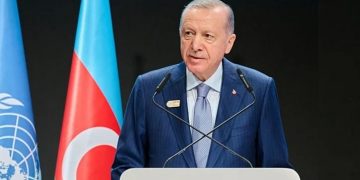 Salehi made the remarks at the headquarters of the Council on Foreign Relations in New York City on Monday.
Salehi made the remarks at the headquarters of the Council on Foreign Relations in New York City on Monday.
He criticized the West’s Islamophobia and anti-Iran stance, saying the campaign of fear is being conducted at a time when a sea change has occurred in the region.
Salehi was referring to the series of revolutions and uprisings in several countries in the Middle East and North Africa region that began in late 2010.
“Indeed, a sea change has occurred in our surrounding as well as at the global level… Yet the continuous anti-Muslim and anti-Iran narrative in the West and the United States is quite striking,” he said.
He went on to say that the “fear industry” prevents countries from understanding Iran’s foreign policy, noting that certain countries have used Tehran’s peaceful nuclear energy program as a pretext to level baseless allegations against Tehran.
“It [the West’s anti-Muslim and anti-Iran narrative] is creating a gulf between the perception on Iran and its realities on the ground. Iran is a part of the solution to all of the regional challenges and crises,” Salehi stated.
“They try to portray Iran as a problem for the region. [But] contrary to the pronouncements, Iran is the anchor of security, stability, and peace in its region,” he added.
He went on to say that it is Iran’s policy to “work with all of our neighbors for a more secure and stable Persian Gulf.”
“Iran is a source of security in this water outlet… Iran is a regional provider of security… All extra-regional disputes that are based on the artificial threat of Iran in the Persian Gulf are doomed to failure.”
Salehi pointed to the peaceful nature of Iran’s nuclear energy program, saying that “during the last few centuries, we Iranians never launched a war but zealously have defended our country and will do so by all means. However, the statements on attacking Iran, for whatever reasons… are against regional and international peace and security.”
He also insisted that “the phrase ‘attacking Iran’ is a response to the identity and security crisis of Israel and absolutely for domestic political consumption.”
“The Israeli ruling clan, who are war drum beaters, use the pretext of the Iranian nuclear threat for all political gains and games,” Salehi stated.
“Iran, as a member of the NPT, is working with the International Atomic Energy Agency and negotiating with the 5+1 (the five permanent members of the United Nations Security Council and Germany) to address the mutual concerns. However, Israel is not a party to any disarmament conventions, including the NPT, and is a major impediment for the Middle East to be declared… a nuclear-free zone,” the Iranian foreign minister said.
“Israel… is the most significant source of instability and insecurity in the region and, indeed, a liability for American Middle Eastern policies,” Salehi noted.
The United States, Israel, and some of their allies accuse Iran of pursuing military objectives in its nuclear energy program.
However, Iran is a signatory to the nuclear Non-Proliferation Treaty (NPT) and thus has the right to enrich uranium to produce fuel.
And the International Atomic Energy Agency has conducted numerous inspections of Iran’s nuclear facilities but has never found any evidence showing that Iran’s civilian nuclear program has been diverted to nuclear weapons production.
Commenting on the current unrest in Syria, Salehi said, “For stability in Syria, the engagement of all parties, including the government, is a necessity. Hasty politics and foreign intervention under any guise will only aggravate the situation and lead to more bloodshed and the killing of innocent people. We believe the Syrian crisis has a political solution, not a military one. More militarization of the Syrian situation will have significant ripple effects in our region. This is the reason why Iran supports regional political initiatives.”
The Council on Foreign Relations, founded in 1921, is a US nonprofit, nonpartisan membership organization, specializing in US foreign policy and international affairs. It is believed to be the most influential foreign-policy think tank of the United States.
(Press TV)













